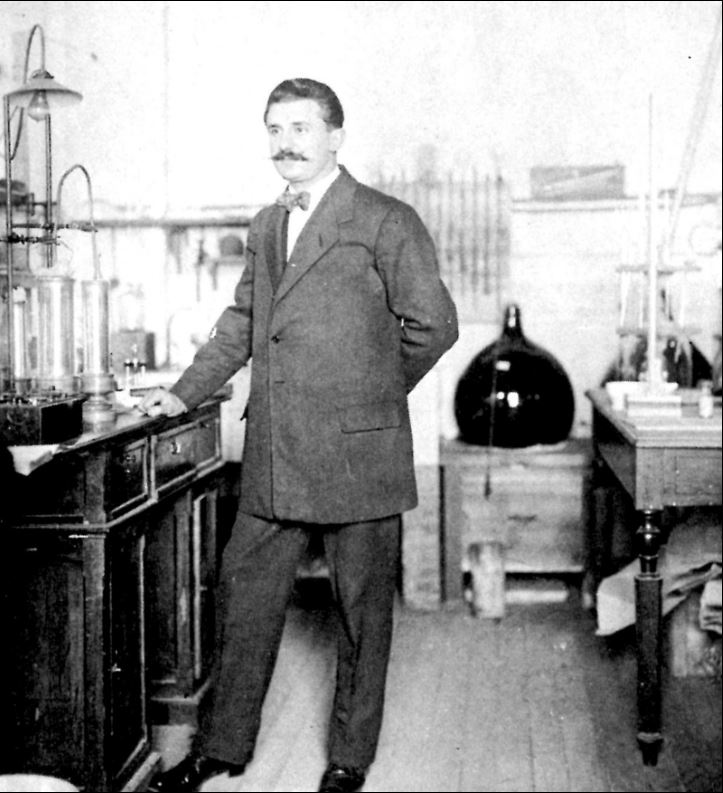 Persona - Moles Ormella, Enrique (1883-1953)
Persona - Moles Ormella, Enrique (1883-1953)
Identificación
Tipo:
Persona
Forma autorizada:
Moles Ormella, Enrique (1883-1953)Formas paralelas (otros idiomas) Otras formas
Fechas de existencia:
Barcelona (España) 1883 - Madrid (España) 1953
Historia:
Farmaceútico, físico y químico español. Hijo de Pedro Moles Alrich y de María Ormella Figuerola. Hermanos: Juan, Odón, Pedro y Concepción. Licenciado en Ciencias Químicas por la Universidad de Barcelona. Doctor en Ciencias Químicas por la Universidad Central de Madrid con la tesis: "Revisión físico-química del peso atómico del fluor. Contribución a la química del mismo elemento". Además, se doctoró en Farmacia y en Física. Estuvo ampliando estudios en la Universidad de Leipzig pensionado por la Junta para Ampliación de Estudios (JAE). Fue Catedrático de Química Inorgánica de la Facultad de Ciencias de la Universidad Central de Madrid.
Al iniciarse la Guerra Civil, tuvo que hacerse cargo de la dirección del Instituto Nacional de Física y Química, pues Blas Cabrera cruzó la frontera y se refugió en París.
Al finalizar la contienda sus hermanos Juan y Pedro se exiliaron en México y Enrique se exilió en Francia. Fue encausado por el Tribunal especial de represión de la Masonería y del Comunismo por delito de comunismo en 1940. Regresó a España en 1941 y fue detenido y encarcelado siendo puesto en libertad posteriormente, aunque no se le restituyeron sus cargos universitarios. En 1944 se incorporó al Instituto de Biología y Sueroterapia (IBYS) como asesor técnico de la Sección de Química Farmacéutica.
Se casó con Julia Bello Conde y tuvieron un hijo, Enrique Moles Conde, también farmaceútico, quien publicó una biografía dedicada a su padre en 1975.
En su honor y recuerdo el Premio Nacional de Química lleva el nombre de Enrique Moles Ormella. Está considerado como uno de los químicos españoles más importantes del siglo XX.
Fecha del evento: 1936 - 1939
Conceptos/Objetos/Acontecimientos
Fuentes
Relaciones
Relaciones asociativas :
Relaciones familiares :
Ficheros Adjuntos
Enlaces Externos
Represaliados:
Portal de Víctimas de la Guerra Civil y Represaliados del Franquismo - Micrositio de PARES
Catálogo de Autoridades:
Fichero de Autoridades:
Documentos
Productor de:
- No hay Unidades de Descripción asociadas.






